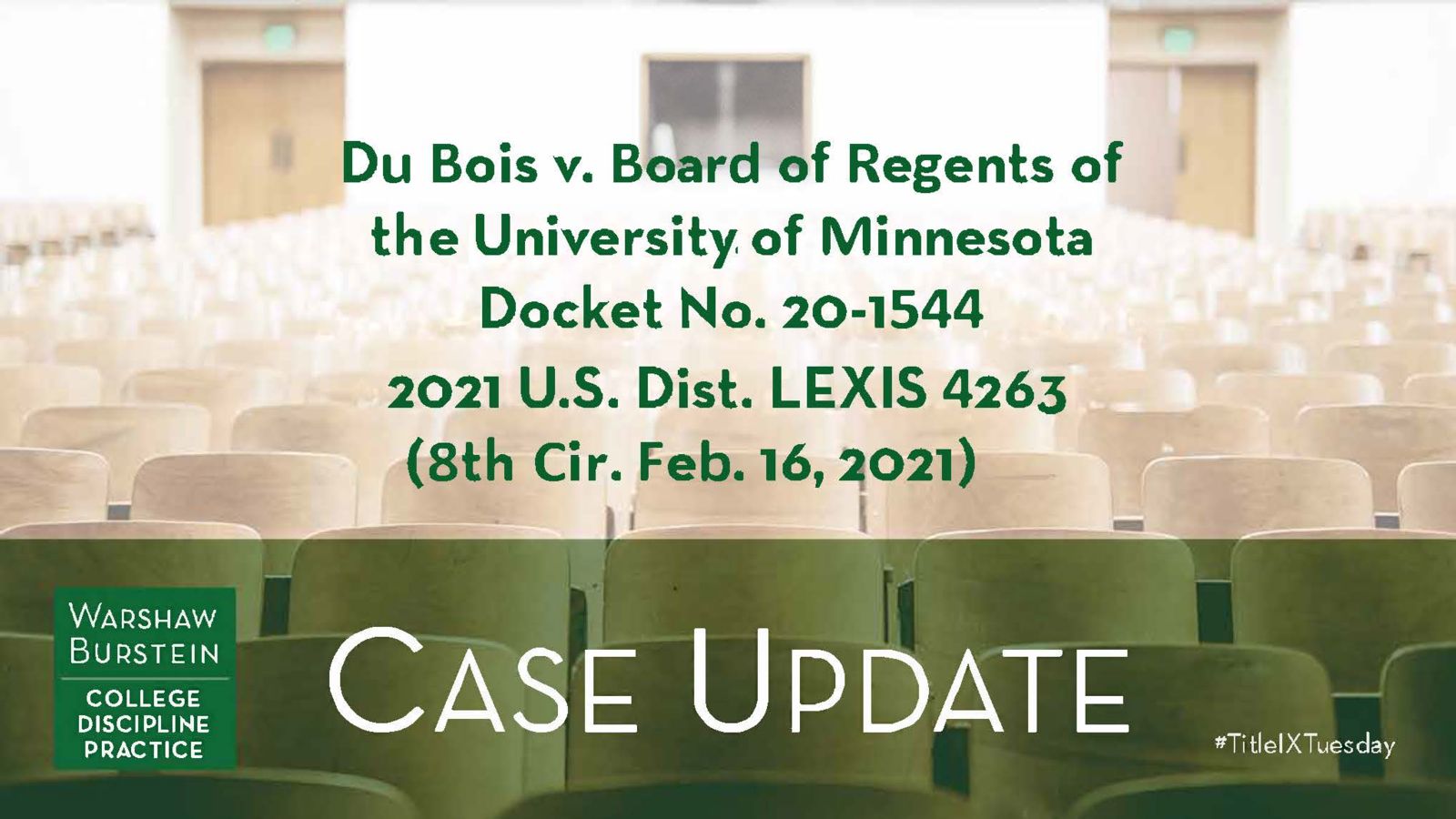-
Du Bois v. Board of Regents of the University of Minnesota, Docket No. 20-1544, 2021 U.S. App. LEXIS 4263 (8th Cir. Feb. 16, 2021)
02/23/2021

Paige Du Bois was a member of the University of Minnesota Duluth’s (“UMD”) track and field team. In March 2018, Joanna Warmington, the then head coach of the team, took an unexpected leave of absence, leaving the team without a coach for the remainder of the season. UMD told Du Bois that she could redshirt during the spring 2018 track and field season to preserve her eligibility to compete when Warmington returned. Du Bois decided to compete that spring and did not redshirt. Eventually, Du Bois learned that Warmington was under investigation for sexual harassment and chose to provide information to UMD investigators in support of Warmington. Du Bois subsequently sustained an injury, which when combined with the uncertainty over Warmington’s future, led Du Bois to consider redshirting for the fall season. When Warmington resigned, Du Bois asked to redshirt but was told that she could not do so. When Du Bois raised the possibility of transferring to another school’s athletic program, UMD warned her that she would be released from UMD if she visited other schools. Du Bois ultimately transferred to Northern Michigan University and ran for the women's cross-country team. Du Bois later filed suit, claiming that UMD violated Title IX by (1) retaliating against her for supporting Warmington in the sexual harassment investigation by not allowing her to redshirt; and (2) discriminating against her on the basis of sex. The University filed a motion to dismiss for failure to state a claim, and the district court granted UMD’s motion. Du Bois then appealed to the Eighth Circuit Court of Appeals, where the dismissal was affirmed.
While Title IX does not expressly provide a right of action for retaliation, courts have recognized an implied right of action. The Eighth Circuit is yet to establish a test for retaliation under Title IX and noted that the circuits are split on what a plaintiff needs to show to support a claim of retaliation. Generally, the circuit courts agree that a plaintiff must show: (1) the plaintiff partook in protected activity; (2) the plaintiff suffered an adverse action; and (3) a causal connection exists between the two. The circuits are then split over whether the plaintiff needs to demonstrate that the defendant knew of the protected activity. The Eighth Circuit did not reach this issue, because Du Bois failed to show that she partook in a protected activity.
Du Bois argued that because she participated in the investigation as a witness in support of Warmington, she was engaged in a protected activity. However, the Court held that “no part of Title IX designates participation in a sexual harassment investigation on the side of the accused as protected activity.” Du Bois did not file a complaint alleging sexual harassment, and in her role as a witness, she denied the existence of any sexual harassment on the part of Wilmington. Du Bois urged the Court to extend retaliation protections found in nondiscrimination statutes and regulations to Title IX. The Court declined to do so because Title VII and 34 C.F.R. § 100.7(e) contain provisions that prohibit discrimination because of participation in an investigation, but Title IX does not. Because Du Bois could not show she was engaged in a protected activity, the Eighth Circuit affirmed the dismissal of her complaint.
Blog
